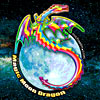Chinese medicine divides foods and herbs into seven flavors, each representing a basic Energetic property. Note that the flavors are based on the effects on the body and may differ from actual taste.
Sweet is Tonifying, Harmonizing, and Relaxing. Tonifying can be used to support or strengthen the body, blood, or specific organs. Harmonizing can be used to bring the body and spirit into balance. Relaxing can be used to counteract spasms and tightness.
Ayurveda medicine: Sweet Taste. “Sweet taste increases body tissues, nourishes sense organs and promotes strength. The character of this Taste is cold, damp and heavy for digestion, reducing the Agni or Digestive Fire. Composed by Earth and Water Elements, Sweet taste is predominant in Sugar and Carbohydrates would increase Kapha and when taken in excess, promotes congestion, lethargy and obesity, constipation, heaviness etc. Sweet Taste would decrease Pitta and Vata.”, according to Dr. Ram Tamang of The Healing Gardens of Ayurveda.
from “Chrak Samhita”:
XVI. 43
DESCRIPTION OF THE SIX TASTES
AyurvedicI. Sweet
The sweet taste (as it is of the same nature as the human body, whose tissues taste sweet), promotes the growth of all bodily tissues and Ojas. Aiding in longevity, it is soothing to the five sense organs and the mind, and gives strength and good complexion. Sweet taste alleviates Pitta, Vata and the effects of poison. It also relieves thirst and burning sensation and it promotes the health and growth of skin and hair; it is good for the voice and energy.
Sweet taste is nourishing, vitalizing, gives contentment, adds bulk to the body, creates firmness. It rebuilds weakness, emaciation, and helps those damaged by disease. It is refreshing to the nose, mouth, throat, lips and tongue, and relieves fits and fainting. The favorite of insects, particularly bees and ants, sweet taste is wet, cooling and heavy.
Yet when used too much by itself or in excess, sweet taste creates obesity, flaccidity, laziness, excessive sleep, heaviness, loss of appetite, weak digestion, abnormal growth of the muscles of the mouth and throat, difficult breathing, cough, difficult urination, intestinal torpor, fever due to cold, abdominal distention, excessive salivation, loss of feeling, loss of voice, goiter, swelling of the lymph glands, legs and neck, accumulations in the bladder and blood vessels, mucoid accretions in the throat and eyes, and other Kapha-caused diseases.
from “The Art of War”:
Chapter 5
ENERGY
by Sun TzuThere are not more than five cardinal tastes (sour, acrid, salt, sweet, and bitter), yet combinations of them yield more flavours than can ever be tasted.
slightly sweet foods and herbs
- asparagus
- barley, pearl
- cabbage
- Chinese yam
- crab
- cucumber
- loquat
- lotus root
- lycium fruit
- mango
- orange
- papaya
- peach
- pear
- pearl barley
- squash
- strawberry
- string beans
- yam
sweet foods and herbs
- apple
- apricot
- Asian pear
- banana
- beef (not recommended)
- black sesame seed
- brown rice
- cantaloupe
- carrot
- cherry
- chicken (not recommended)
- chicken eggs (not recommended)
- cod
- Chinese date
- dairy (not including cheese) (not recommended)
- eggs, chicken (not recommended)
- eggplant
- fig
- fish
- gelatin (not recommended)
- gojii berry
- grape
- grapefruit
- jujube
- lamb (not recommended)
- lycii berry
- milk (not recommended)
- millet
- mulberry
- oats
- oyster
- pork (not recommended)
- raspberry
- rice
- salmon
- shrimp
- spinach
- sweet potato
- sweet rice
- tangerine
- turkey (not recommended)
- wheat germ
- yogurt (not recommended)
- watermelon
Chinese flavors
See also yin foods, yang foods, and neutral foods













